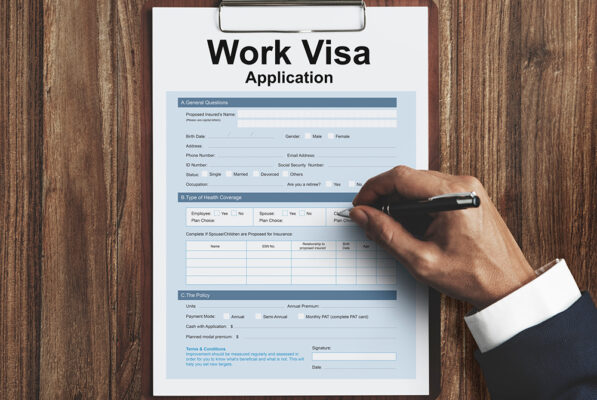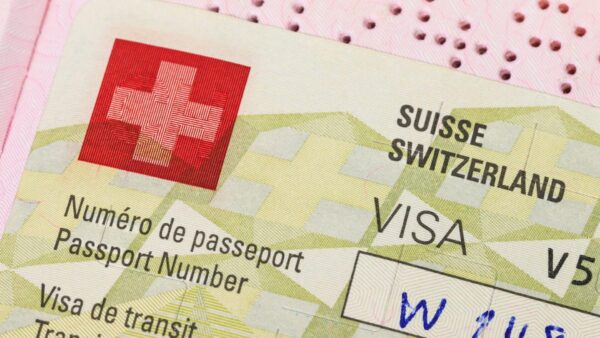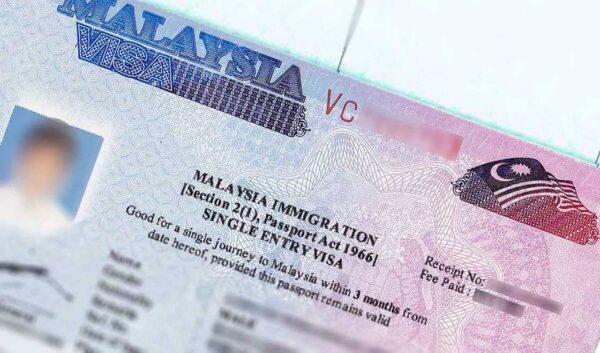If you're thinking about moving abroad, you're probably stuck with one big question: a work visa or a study visa, which is better? Both types of visas are great options, but they serve different purposes depending on your goals, finances, and where you want to end up. So, let's go into detail about work and study visas. We'll check out the pros, cons, and everything else you need to consider when deciding which visa is right for you.
When deciding to travel out of the country, the question of “work visa or study visa, which is better?” is inevitable. First, you need to know what a Work Visa and a Study Visa are.
What is a Work Visa?

Generally, a work visa is a document that gives you access to enter another country to work. The work visa options vary based on country. There are short-term or temporary work visas and permanent work visas, which are long-term and can lead to permanent residency.
Getting a job offer from a company in another country is important for a work visa. Also, the company you're getting the job offer from must be able to prove that there are no skilled workers locally to fill the role. Most times, high-demand industries like tech or healthcare make it easier for you to qualify for a job offer.
This employment-based visa offers immediate job opportunities, allowing you to earn money immediately. You also gain hands-on experience that will help you grow professionally. Working in a foreign country enables you to learn new things and expand your network by connecting with industry experts and building global relationships.
Finding a job abroad can be challenging due to high competition in the job market. However, if you are a skilled worker with a good educational background or advanced degrees, you will be able to stay ahead of the curve.
Visa restriction is another factor that can limit your ability to switch employers easily, as changing jobs could require visiting the immigration office for a new visa application. Additionally, you may have less flexibility in exploring new career paths or pursuing studies, as your visa conditions could restrict these opportunities.
What is a Study Visa?

Now, let's see what a study visa is all about. If you love academics and want to pursue all those degrees or certifications in a foreign country, this is your route. Whether it's a bachelor's degree or advanced degrees like a master's or PhD program, a study visa like the F1 visa lets you live and study abroad as an international student for the duration of your program.
As an international student, If you're going through the study visa route, you must be accepted into a recognized institution and show that you have the financial means to cover tuition and living costs. Depending on your country, you might be asked for proof of language proficiency, such as TOEFL or IELTS, for English-speaking countries.
A study visa offers several advantages, including gaining education and building valuable skills to boost your career. Also, you get to explore the local culture, experiencing life as a resident rather than just a tourist.
On the downside, studying abroad can be costly, with tuition fees and living expenses quickly adding up. Work rights may also be limited, restricting you to part-time jobs that might not cover your cost of living. Furthermore, balancing academic pressure with part-time work and adapting to a new culture can be overwhelming.
Work and Study Visa, Which is Better?
Now that the differences between each visa are being clarified, here's what you should consider when deciding which is best for you.
1. Your goals
A work visa might be your best bet if you have a solid career path and want to enter the labor market. But if you want to enhance your skills or switch careers, studying first could be smarter.
2. Financial Situation
Work visas let you earn an income almost immediately, while study visas require you to invest in education first. Consider whether you can afford the upfront costs of studying or if working and earning immediately makes more sense.
3. Commitment
Work visas might involve long hours and little time for anything else. On the other hand, study visas allow you to explore and experience new cultures and learn about how the locals live. However, you must be able to commit to the full length of your program with little or no privilege to work.
4. Career Flexibility
With a work visa, career flexibility can be limited by the visa terms. Some work visas tie you to a specific employer, making it difficult to switch jobs or explore new career paths without reapplying for a new visa. However, the study visa option is flexible for career exploration. You can switch majors, take various electives, or even pursue internships in different fields.
5. Long-Term Career Impact
If you want a direct route to building a professional career abroad, a work visa can help. Your goal might be immediate employment and professional growth; this is good and can give you a competitive edge, especially if you aim to climb the corporate ladder quickly.
For a study visa, you can get long-term benefits that equip you with academic qualifications, which will come in handy after the successful completion of your international education. You might not get immediate employment with a study visa, but you're sure to be more prepared, which can improve your employability in a foreign country.
6. Visa Duration
The duration for work visas often depends on your employer's sponsorship and the country's immigration regulations. Some countries offer pathways to permanent residency after a certain period of time. Student visas, on the other hand, are typically valid for the period of your education program.
7. Challenges and Stress Factors
The pressure you might experience as a foreign worker is often on maintaining employment, meeting visa conditions, and excelling at your job. Also, losing your job could have an impact on your visa status.
Meanwhile, international students go through academic pressures, cultural adaptation, and limited work opportunities, which can be stressful for students with a study permit. Likewise, managing financial constraints might be a big challenge as you may be unable to work full-time to support yourself.
8. Permanent Residency Option
Many countries offer pathways from both work and study visas to permanent residency. If staying long-term is part of your plan, check which option provides a smoother transition based on the country.
Country Differences for Work and Study Visas
When applying for work or study visas, it's important to understand the country-specific differences that can impact your experience as a foreign national. Countries have different requirements, application processes, and eligibility criteria that vary based on factors such as your nationality, the type of job or study program, and the duration of stay.
For example, some countries may prioritize highly skilled workers, while others may have more demanding requirements for language proficiency or specific educational backgrounds. Study visas, too, can differ widely, with some countries requiring proof of financial means to cover tuition and living expenses, while others focus more on academic qualifications or even interviews.
Some countries are better suited for work visas, while others are famous for their study programs. For example, Canada is known for offering fantastic post-graduate work visas, allowing students to stay and explore job opportunities after graduation. Germany is great for skilled workers, with work visa programs that fast-track people in certain industries like IT and engineering. The United States has a strong reputation for its educational programs, but getting a work visa afterward can be more competitive. The UK and Australia also offer great student visa options with pathways to working in the country after you finish studying.
Additionally, the timeline for obtaining a visa can vary greatly. In some countries, the process is relatively quick and easy, taking just a few weeks. Some countries, however, have strict procedures that can delay the process for months, requiring extensive documentation and interviews.
Can I Apply For a Work Visa After My Education?
If a study visa is your primary goal and you want to be sure that you can apply for a work visa after your academics. The answer is Yes. You can apply for a work visa after completing your education, depending on the country you're applying to.
Many countries have post-study work visa programs to help international students transition into the workforce. For example, Canada's Post-Graduation Work Permit (PGWP) allows graduates to stay and work for up to three years, while the UK's Graduate Route visa offers two years for job searching (three for PhD graduates). Australia and the USA also have similar options, such as the Temporary Graduate visa and Optional Practical Training (OPT), which allows students to work temporarily after their studies.
These post-study work visas can be a great stepping stone toward long-term employment or even long-term residency in some countries. The process generally requires proof of graduation from a recognized institution, and some programs, like the USA's OPT, have special provisions for students in high-demand fields like STEM. Ultimately, studying abroad can open doors to both educational and career opportunities, but it's important to research the specific visas available in the country where you plan to study.
Conclusion
Regarding the question work visa or study visa? There's no one-size-fits-all answer. Work visas are perfect if you're ready to start building your career and earning immediately. Study visas make sense if you want to invest in your education for long-term career benefits.
So, what's your next step? Start by reflecting on your career goals, finances, and where you see yourself in the future. Both paths can lead to incredible opportunities; you must decide which road to take. Good luck!
















